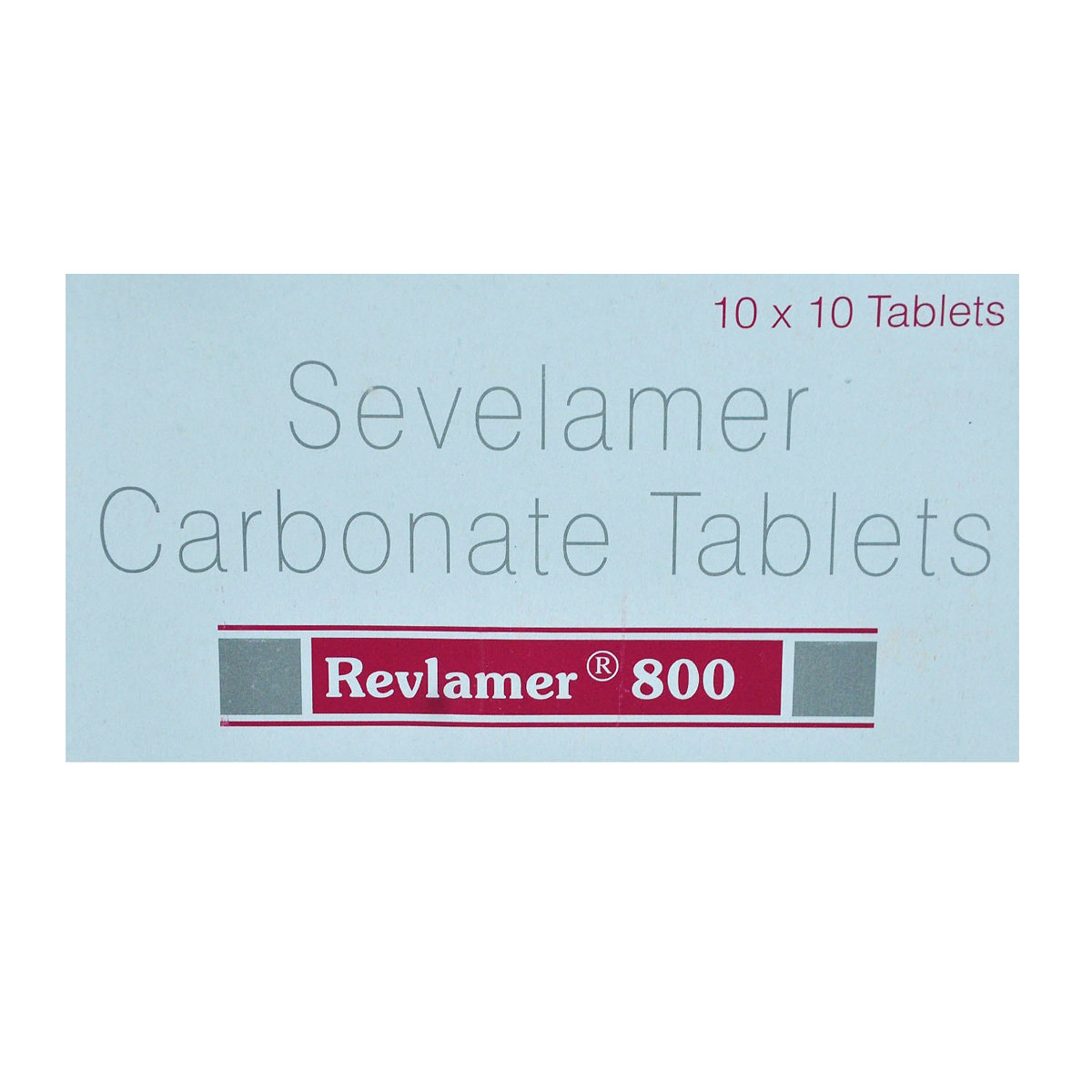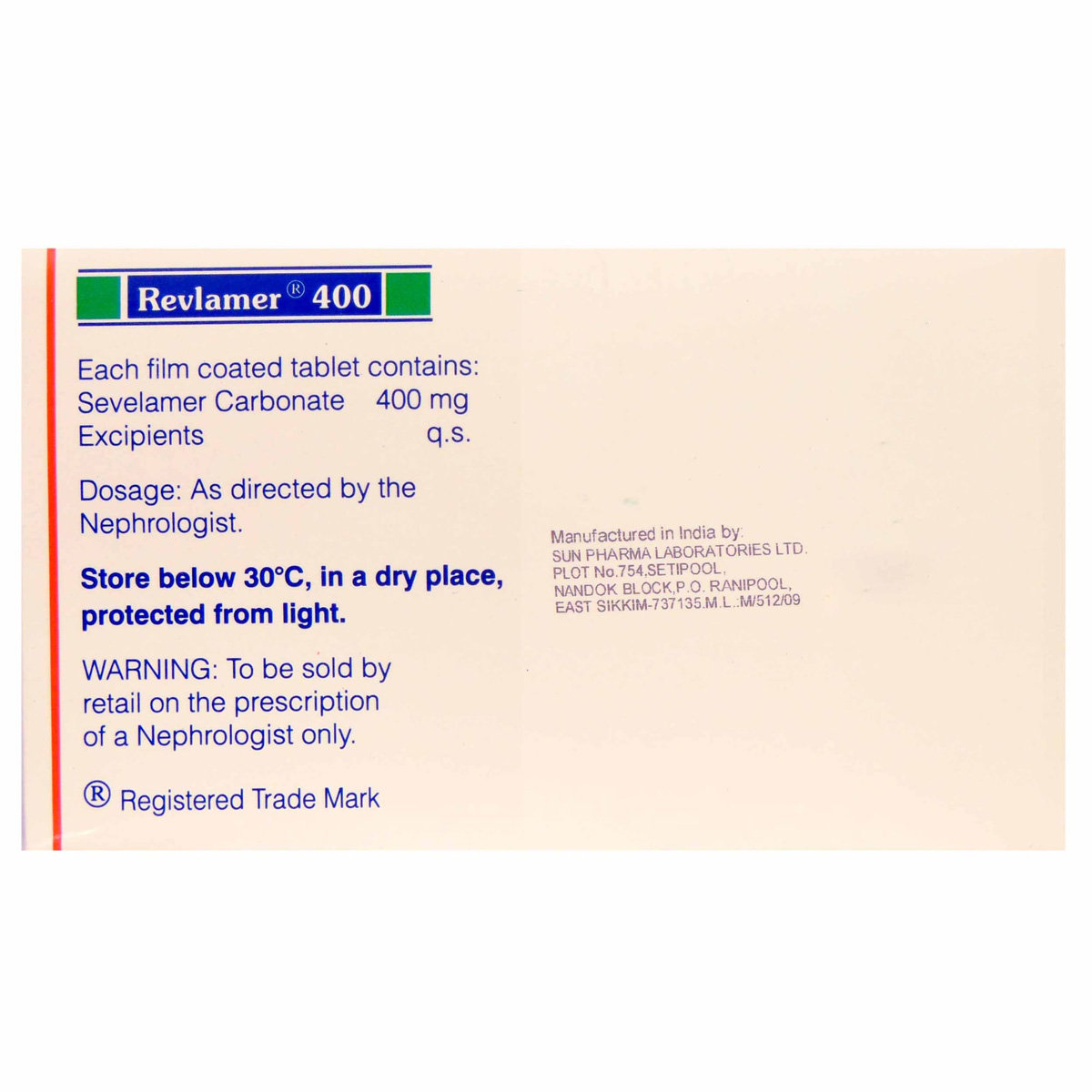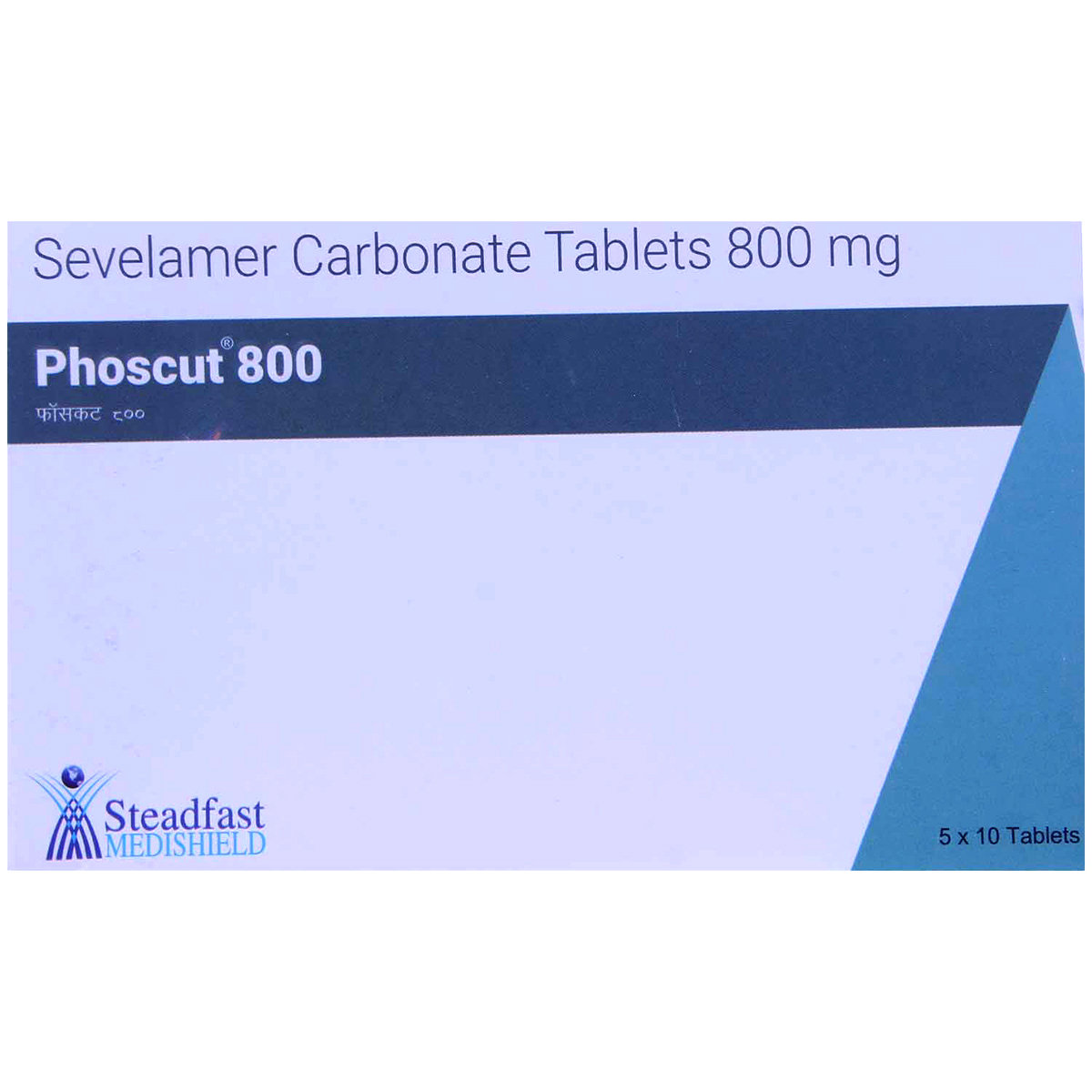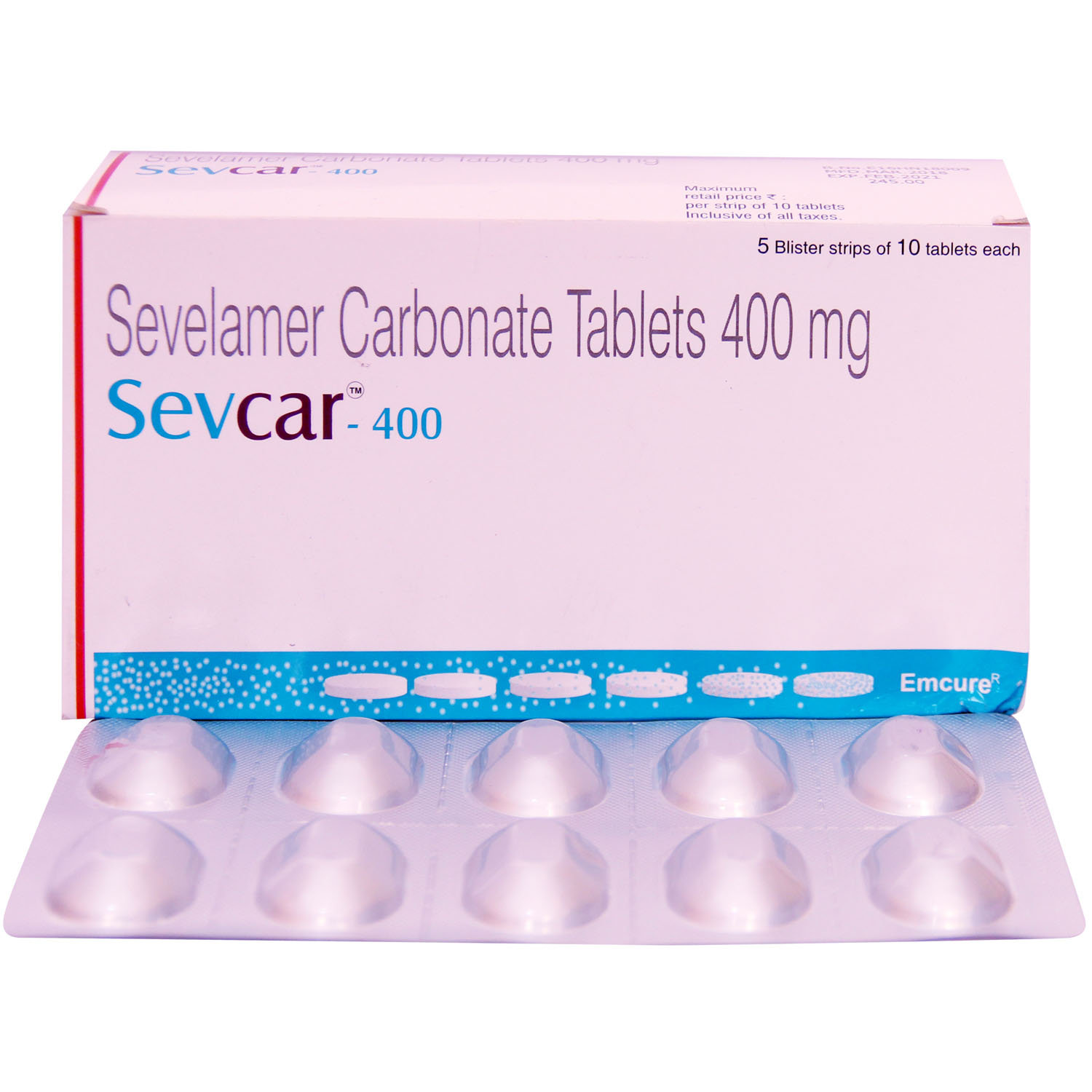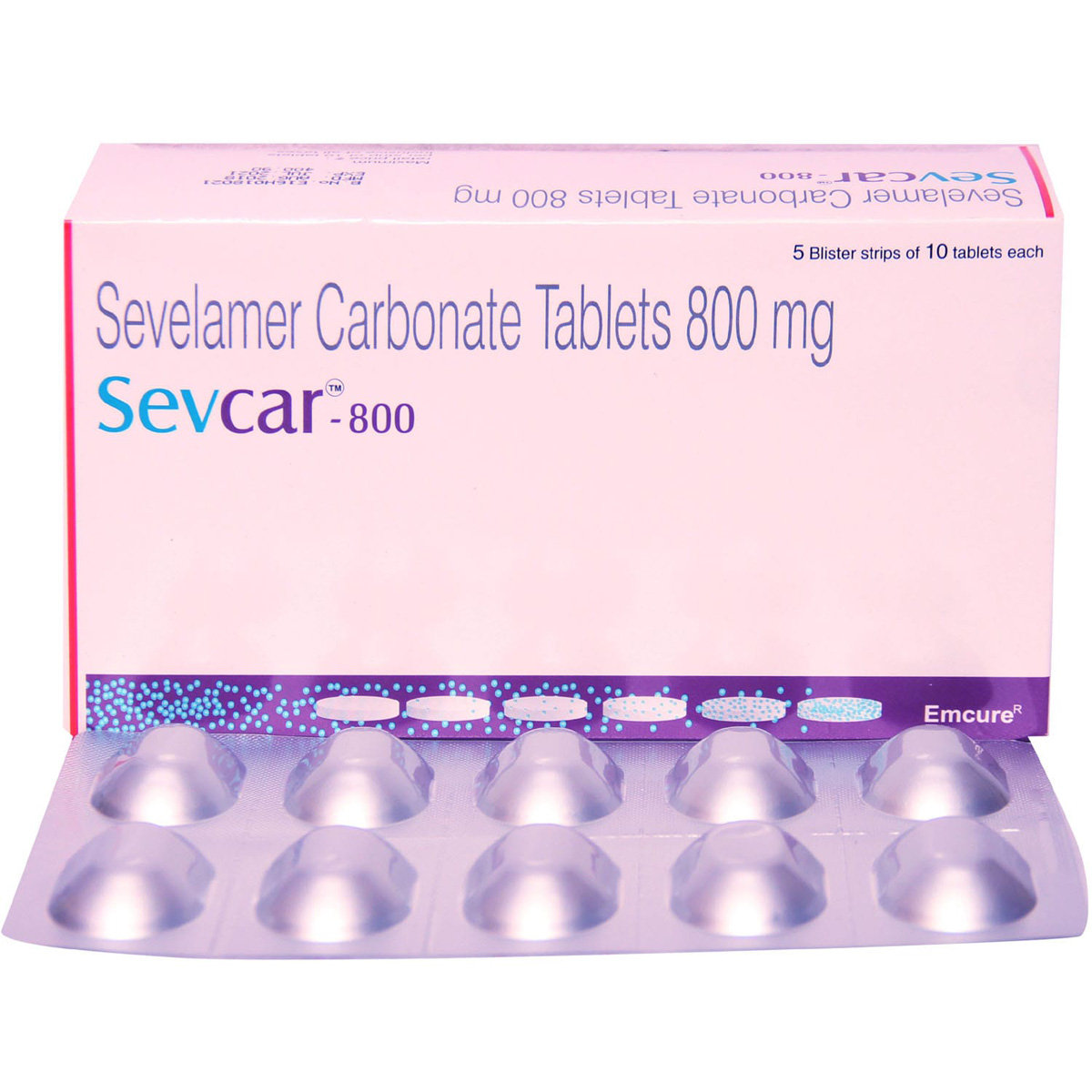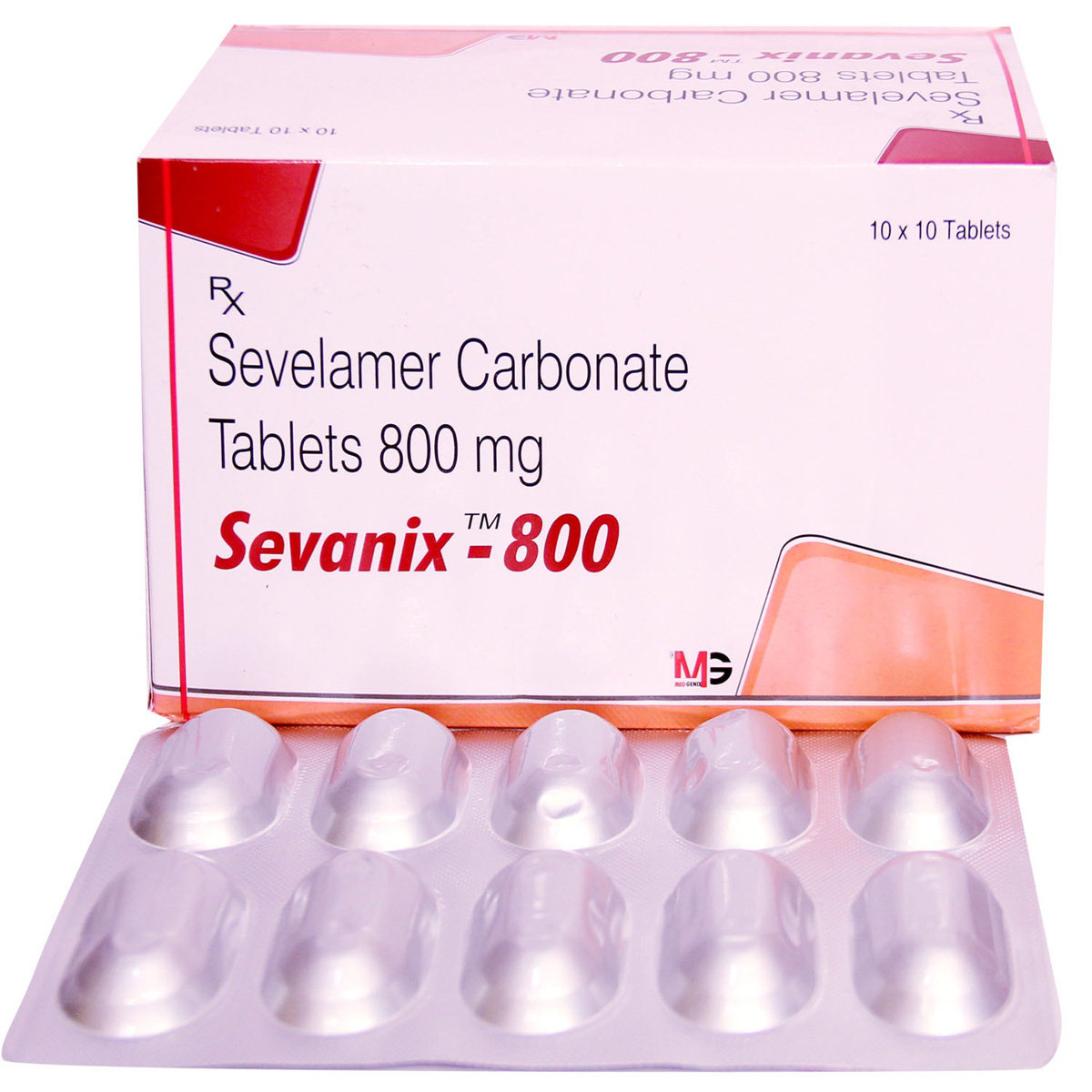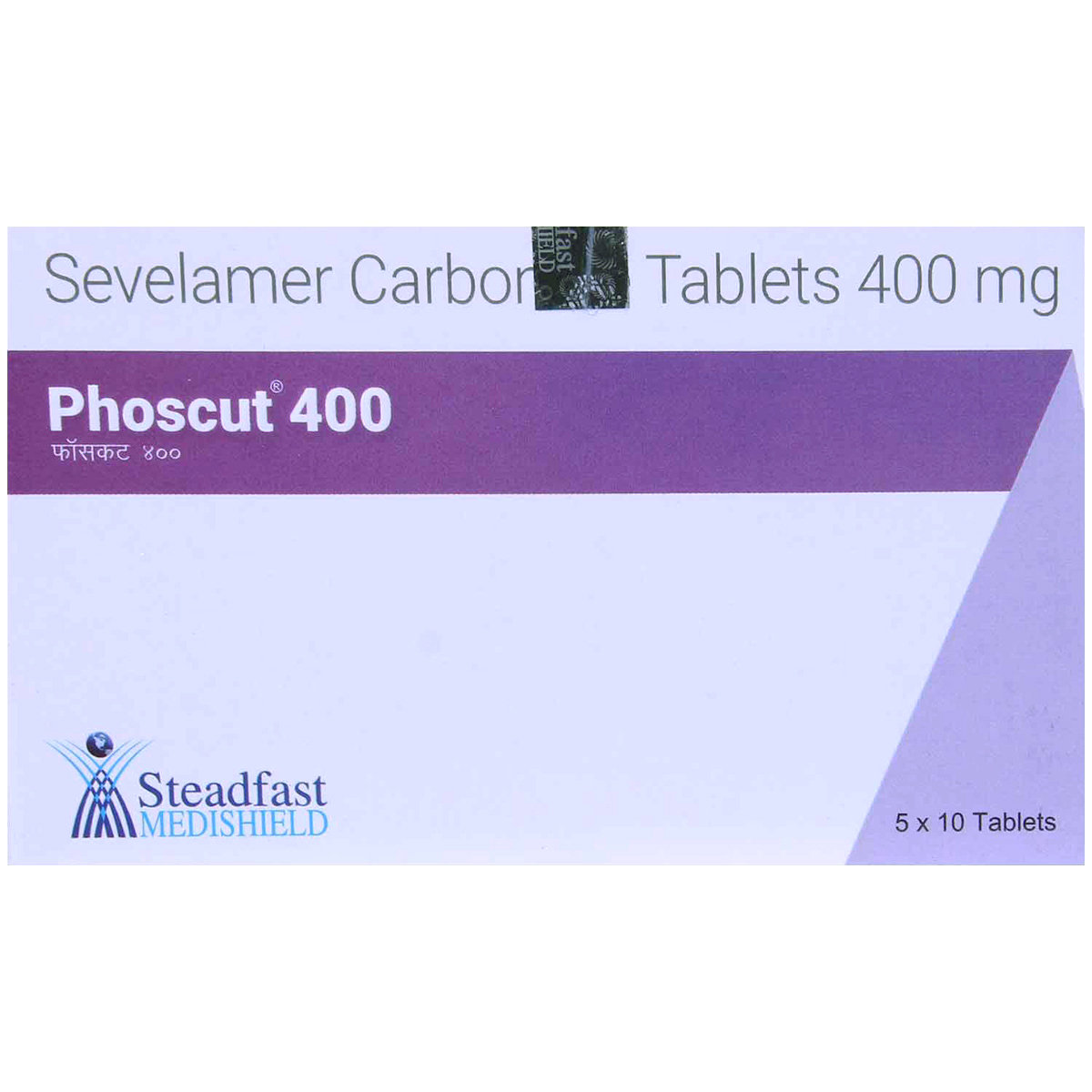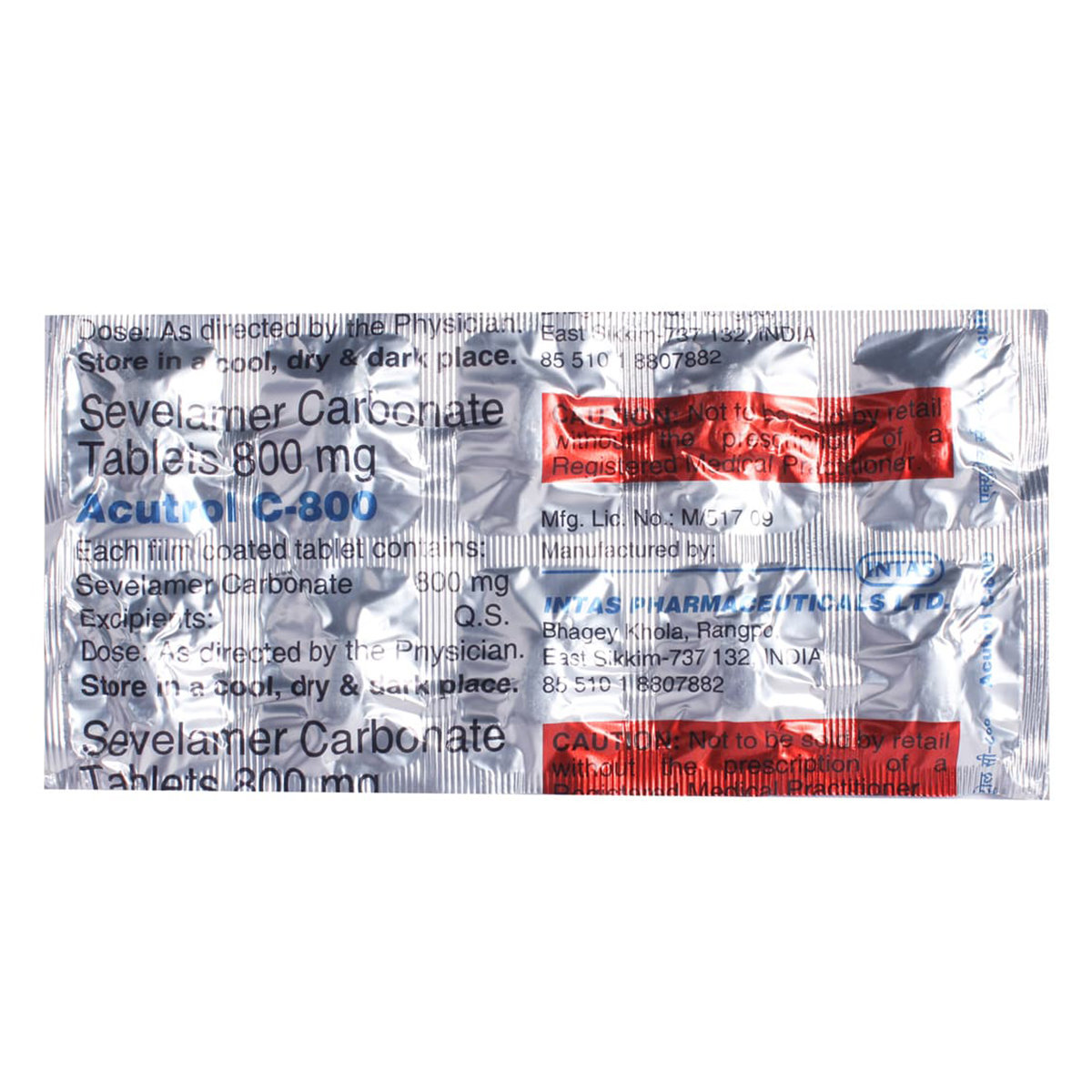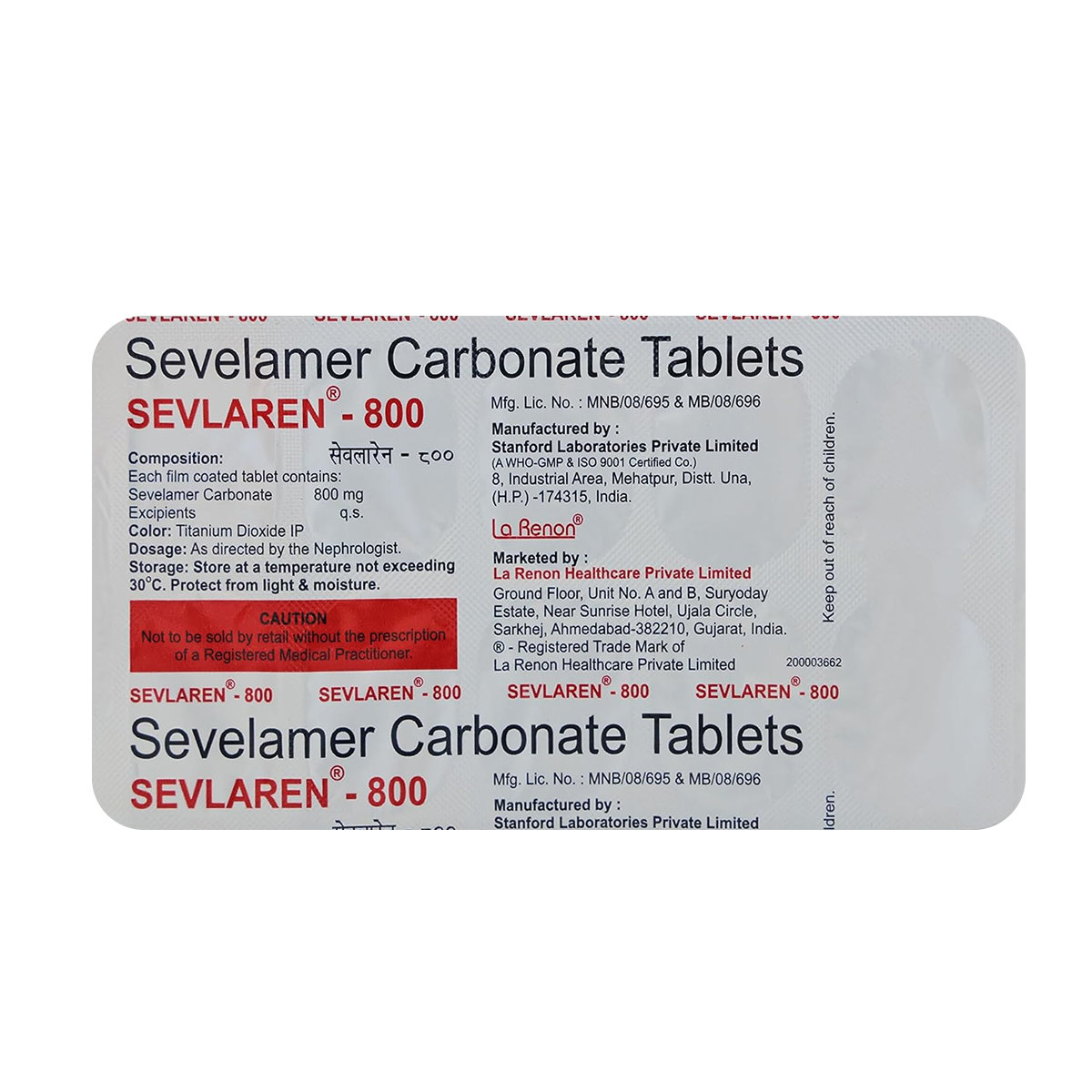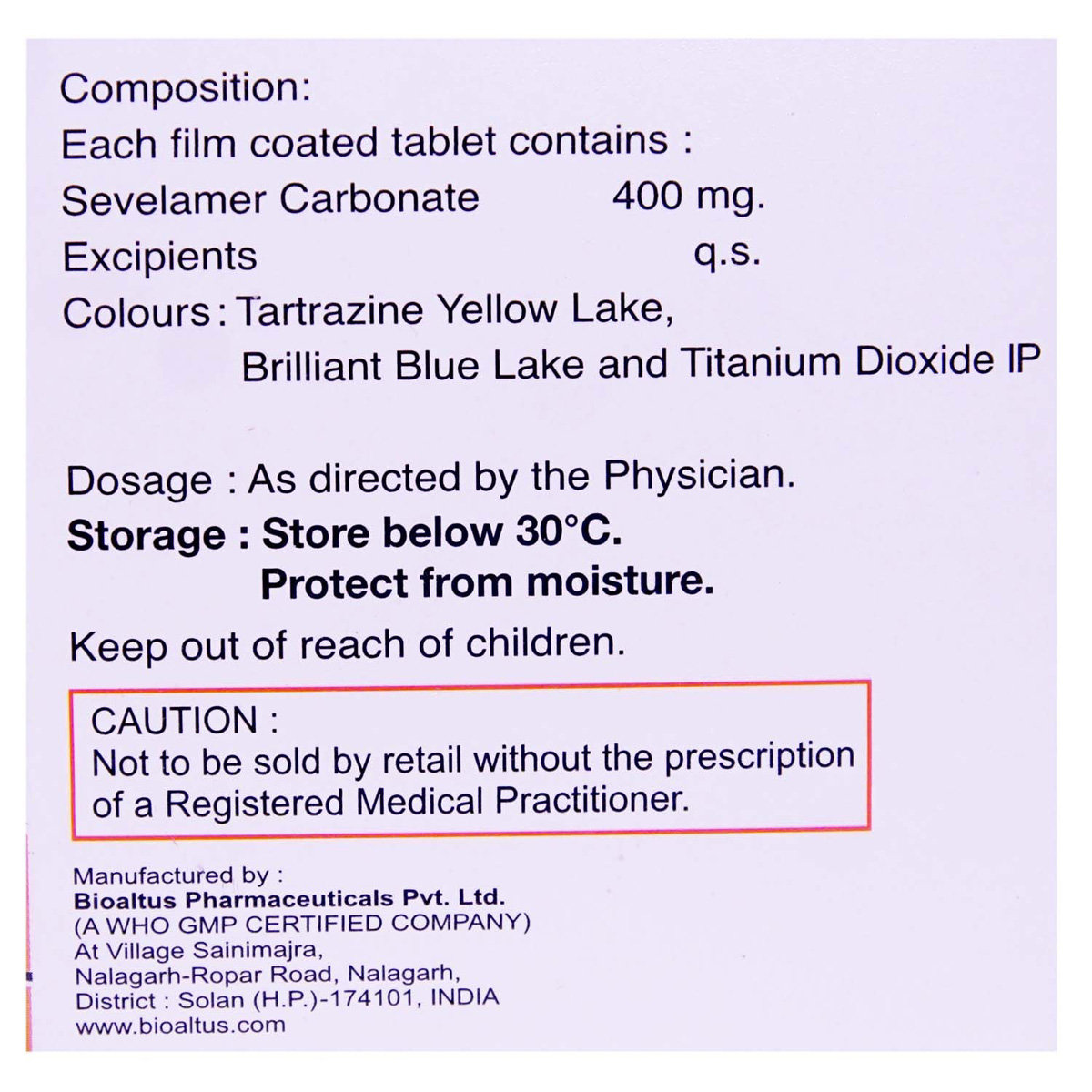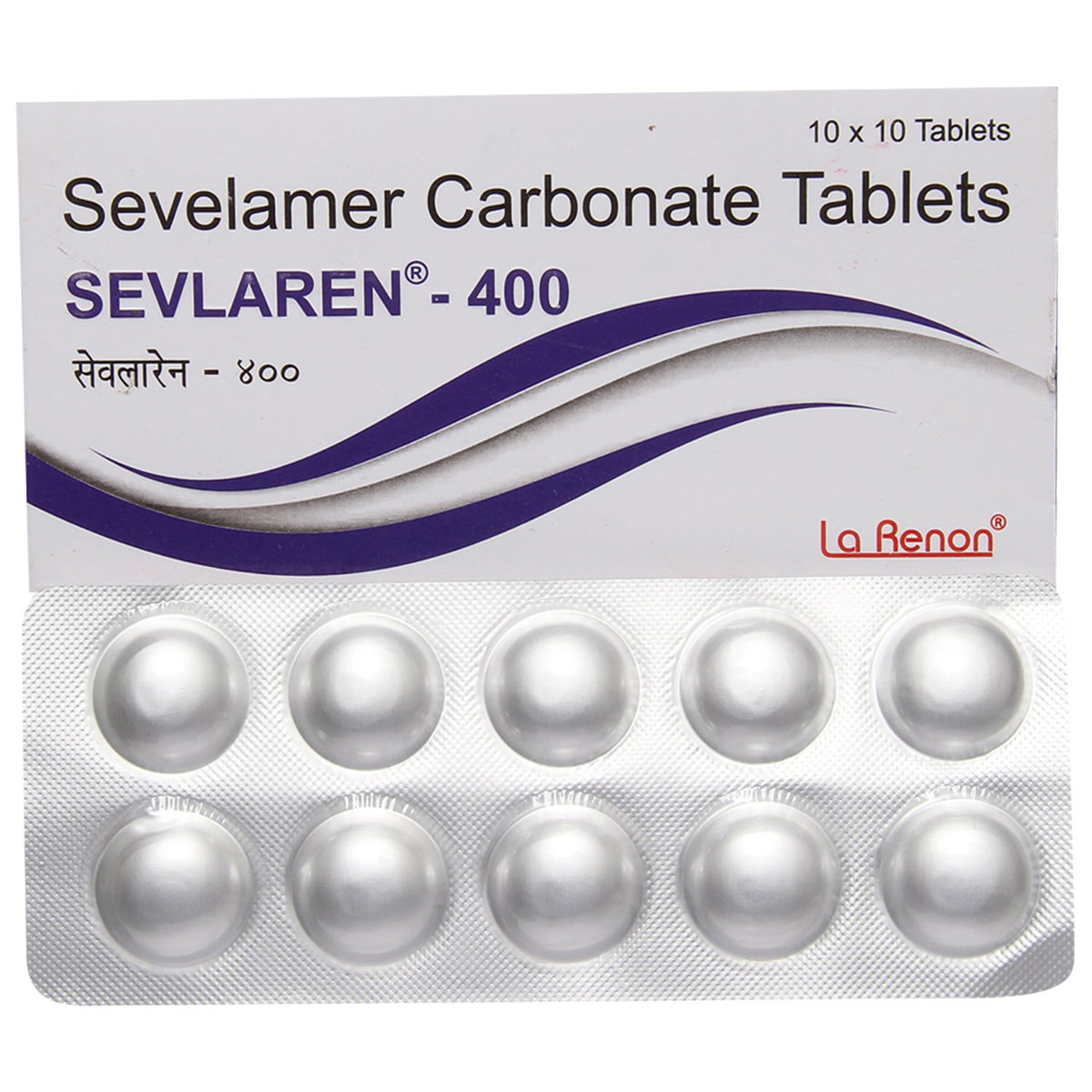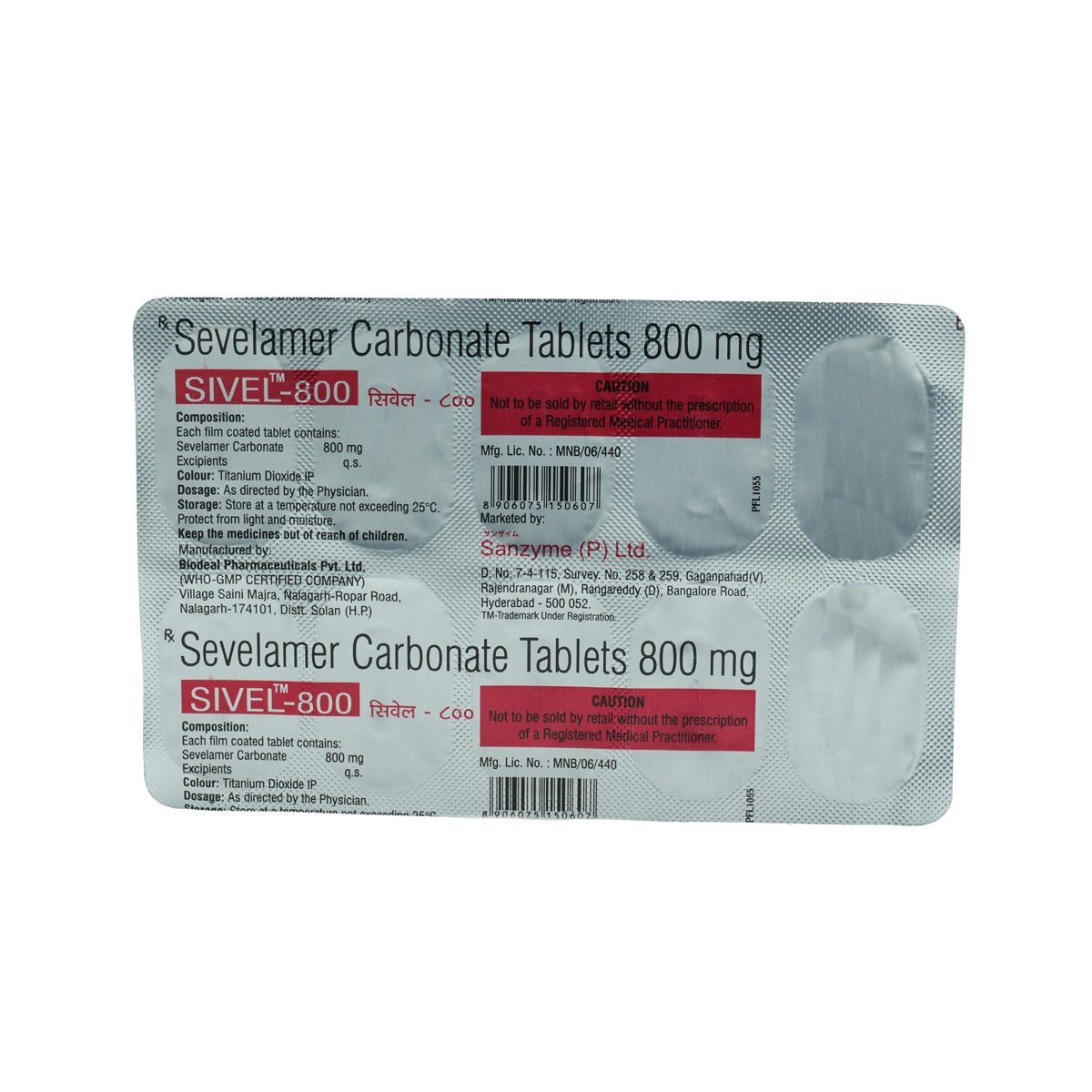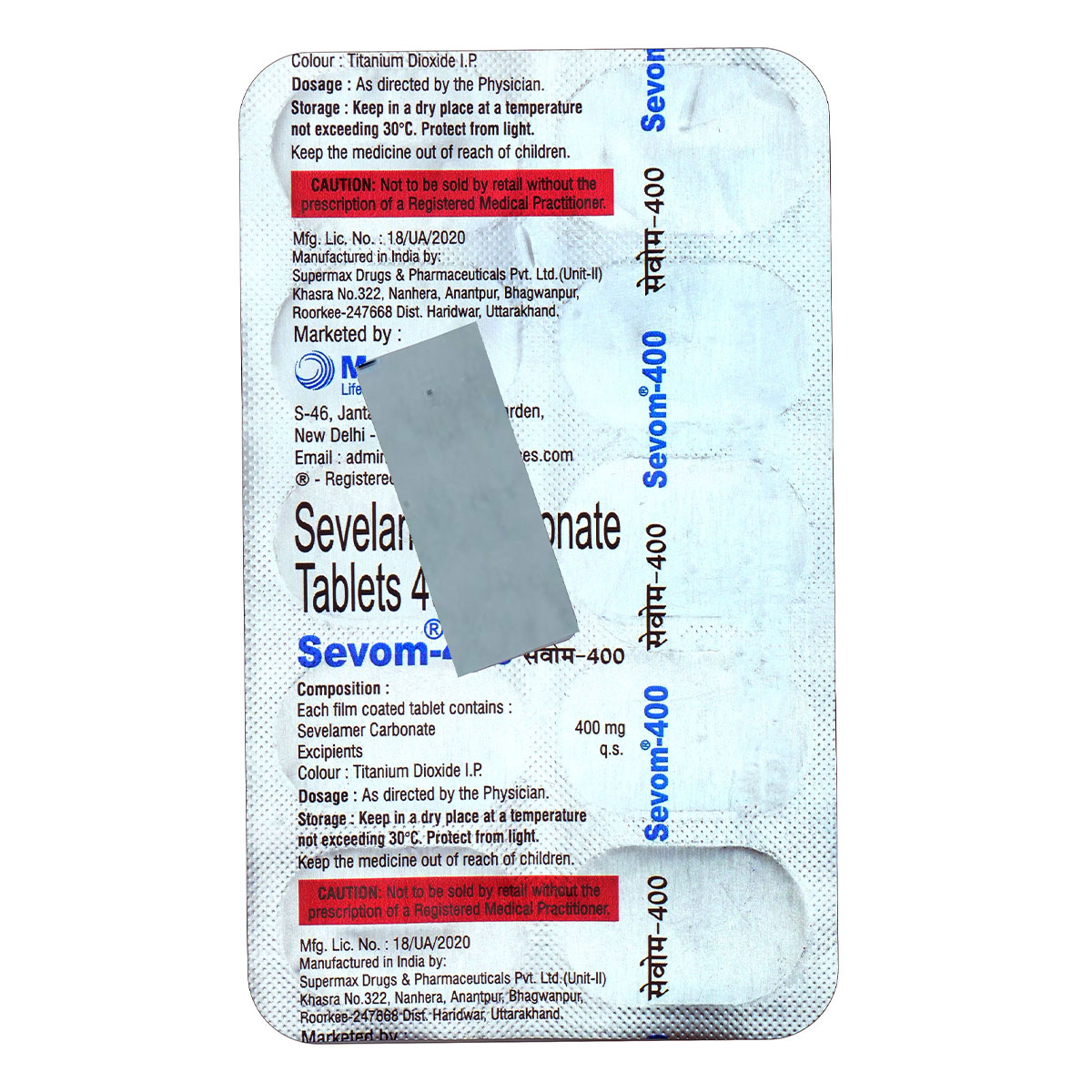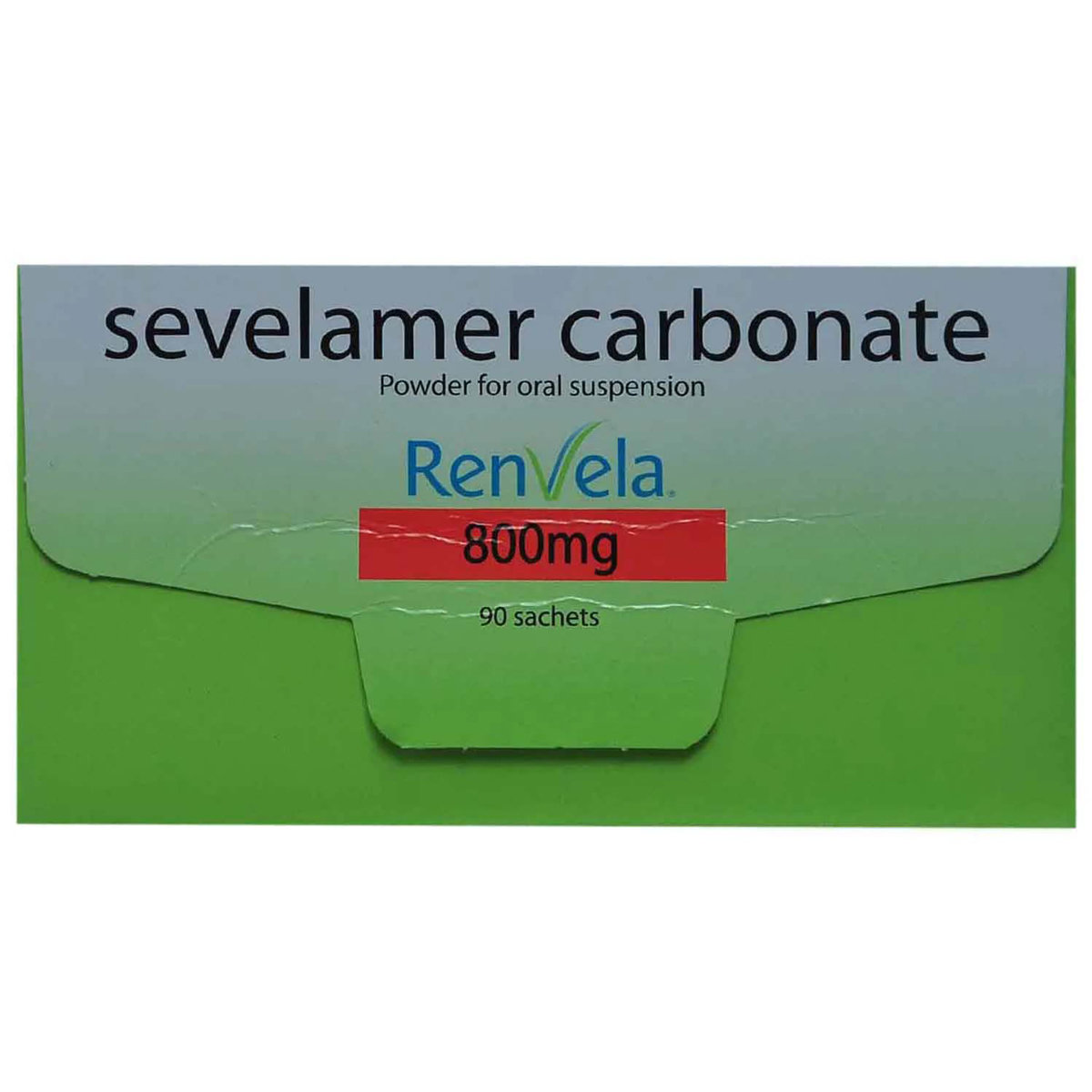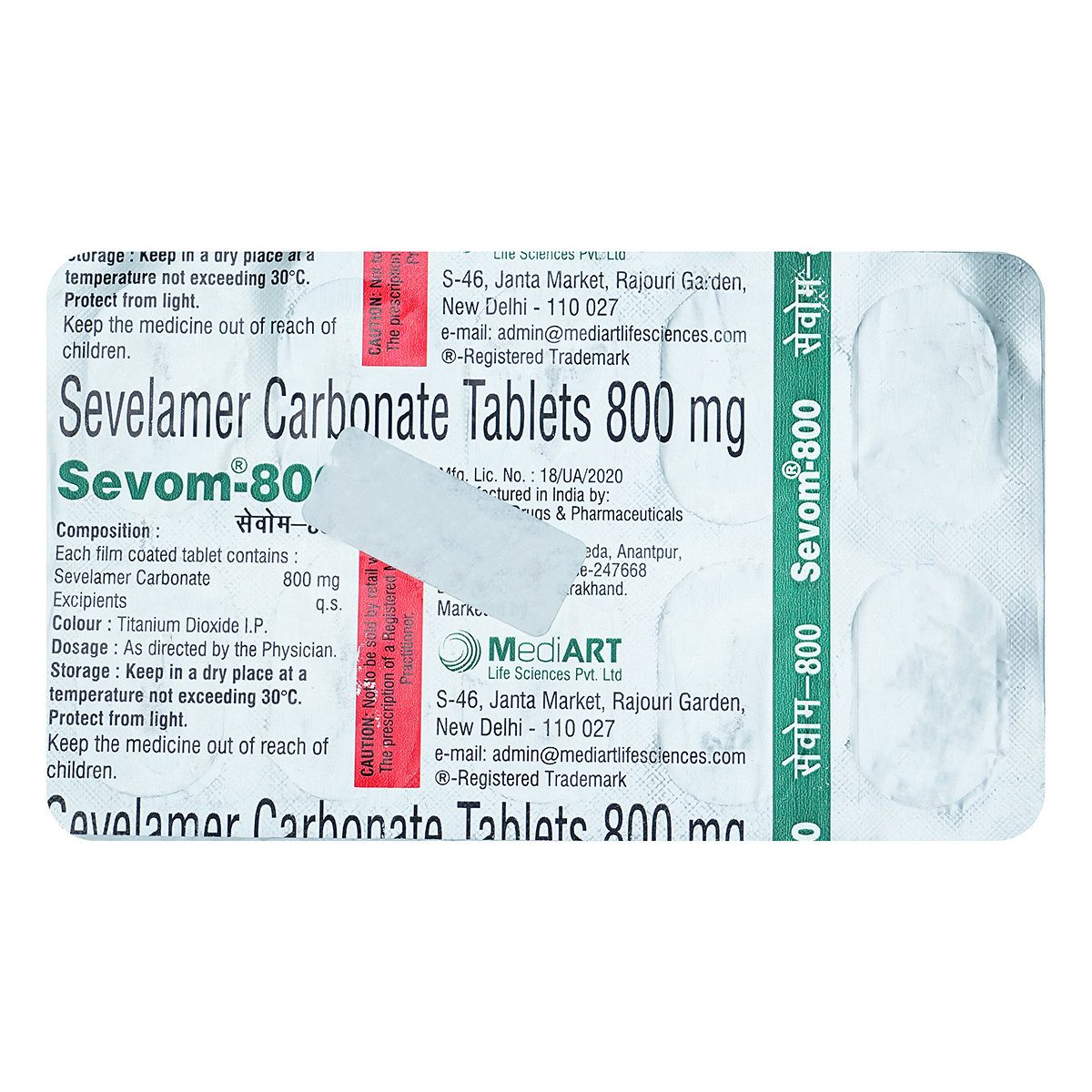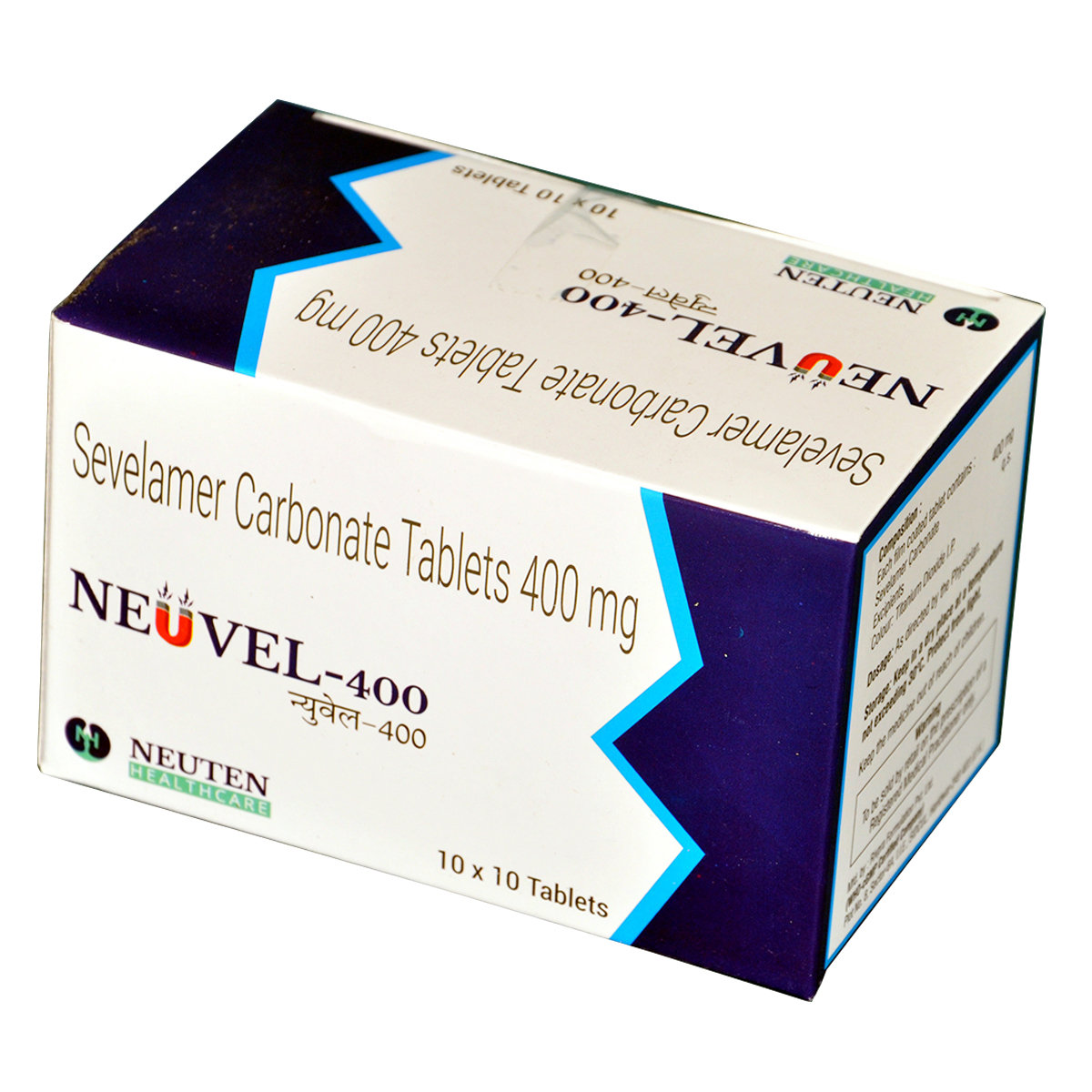Sevelamer
About Sevelamer
Sevelamer is used to control high phosphate levels in the body (hyperphosphataemia) in adult patients on dialysis (a blood clearance technique), patients undergoing hemodialysis (using a blood filtration machine), and patients with chronic kidney disease.
Sevelamer contains sevelamer that works by binding phosphate in the gastrointestinal tract and decreasing absorption. It effectively reduces excess phosphate levels in the blood and prevents the unsafe build-up of phosphate in your body.
The most common side effects of Sevelamer are vomiting, upper abdominal pain, nausea, diarrhoea, stomach ache, indigestion, and flatulence. If any of the side effects are experienced continuously, contact your doctor immediately.
Sevelamer is not recommended if you are allergic to it, or if you have low phosphate levels in your blood or a blockage in your bowel. Also, if you are pregnant or breastfeeding, talk to your doctor before taking Sevelamer.
Uses of Sevelamer
• Treatment of hyperphosphatemia in dialysis patients: Used to lower high blood phosphate levels in adults undergoing haemodialysis or peritoneal dialysis.
• Management of hyperphosphatemia in non-dialysis chronic kidney disease (CKD) patients: Prescribed for patients with chronic renal disease who do not require dialysis but have elevated serum phosphorus levels (≥1.78 mmol/L).
• Prevention of bone disorders: Used in combination with calcium and vitamin D supplements to lower the risk of bone disease caused by high phosphate levels.
• Supports phosphate balance: Sevelamer helps to maintain a healthy balance of minerals in the blood when the kidneys are unable to filter phosphate properly.
Medicinal Benefits
- Sevelamer belongs to a group of medications called phosphate binders,
- It works by binding phosphate in the gastrointestinal tract and decreasing its absorption. This lowers the phosphate concentration in the body.
- Sevelamer effectively reduces excess phosphate levels in the blood, prevents the unsafe buildup of phosphate in your body, helps to keep your bones strong, and decreases the risk of heart disease and strokes.
- Sevelamer controls hyperphosphataemia (high blood phosphate levels) in adult patients on dialysis (a blood clearance technique), patients undergoing hemodialysis (using a blood filtration machine) or peritoneal dialysis (where the fluid is pumped into the abdomen and an internal body membrane filters the blood), and patients with chronic kidney disease.
Directions for Use
- Sevelamer can be taken with meals or as advised by your doctor.
- Follow your doctor's instructions on the dosage and timing of this medication.
- Swallow the whole tablet with a glass of water.
- Do not crush, chew, or break it.
Storage
Side Effects of Sevelamer
- Headache
- Diarrhoea
- Stomach upset
- Constipation
Medicines Containing this Salt
View AllDrug Warnings
- You should avoid taking Sevelamer if you are allergic to it or any of its ingredients.
- Speak to your doctor if you have swallowing disorders, digestive tract surgery, severe constipation, have undergone major surgery on your stomach or bowel, or have serious inflammatory bowel disease.
- If you are pregnant or breastfeeding, consult your doctor before using Sevelamer.
- Avoid alcohol consumption while taking Sevelamer as it might cause unpleasant side effects.
- Sevelamer contains lactose (milk sugar). If you have an intolerance to some sugars, contact your doctor before taking Sevelamer.
- Regular monitoring of serum phosphate levels, vitamin D, A, E, K, and folic acid is advised while taking Sevelamer.
Drug Interactions
Drug-Drug Interactions: Sevelamer interacts with antibiotics (ciprofloxacin), immunosuppressive agents (mycophenolate), thyroid medications (levothyroxine), and medication used to treat bladder cancer (erdafitinib).
Drug-Food Interactions: Avoid taking high-phosphate additives and alcohol, as this makes it harder for your body to absorb Sevelamer and increases side effects. Using Sevelamer together with multivitamins with minerals may decrease the effects of multivitamins with minerals. So, multivitamins with minerals should be administered at least 4 hours before Sevelamer.
Drug-Disease Interactions: The use of Sevelamer is restricted in people with hypophosphatemia (low phosphate level in blood), bowel obstruction and perforation, and severe liver disease.
Drug-Drug Interactions Checker List:
Safety Advice

Alcohol
unsafeYou are recommended to avoid alcohol consumption while taking Sevelamer to avoid unpleasant side effects.

Pregnancy
consult your doctorSevelamer is not absorbed by the body and is not expected to reach the baby. If you are pregnant or planning to become pregnant, tell your doctor. They will advise you whether you should take Sevelamer during this time.

Breast Feeding
consult your doctorSevelamer is not absorbed by the body and is not expected to pass into breast milk. If you are breastfeeding or plan to breastfeed, tell your doctor. They will advise you if you should take Sevelamer while breastfeeding.

Driving
safe if prescribedSevelamer has no or negligible influence on the ability to drive or operate any machinery.

Liver
consult your doctorPlease consult your doctor if you have a liver impairment or any concerns regarding this.

Kidney
consult your doctorPlease consult your doctor if you have kidney impairment or any concerns regarding this.

Children
cautionSevelamer is not recommended for children below 6 years as its safety and effectiveness are not known.
Habit Forming
Diet & Lifestyle Advise
- Take fresh fruits, vegetables, rice, milk, unenriched corn and rice cereals, and soda without phosphate additives in your regular diet.
- Avoid or limit high-phosphorus addictive foods (processed meats, instant puddings, sauces, spreadable cheeses, and beverage products).
- Avoid intake of alcoholic beverages with Sevelamer as it can make you dehydrated and may increase the side effects.
- Make sure you drink plenty of fluids. This will help you clear out the extra phosphate and help you overcome some of the issues.
Special Advise
- Regular monitoring of serum phosphate levels, vitamin D, A, E, K, and folic acid is recommended while taking Sevelamer.
Patients Concern
Disease/Condition Glossary
Hyperphosphatemia: Hyperphosphatemia is defined as an increased phosphate level in the blood. This condition is often a complication of chronic kidney disease. Phosphate is an important electrolyte. It strengthens your bones and teeth and produces energy. When phosphate levels increase in the blood due to kidney impairment (the kidneys do not remove extra phosphate out of the body), this can cause muscle problems and increase the risk of weak bones, heart attacks, and strokes. It is more common in people with chronic kidney disease and people on dialysis. Symptoms may include itchy skin, red eyes, bone pain, and fractures.
FAQs
Sevelamer is used to control high phosphate levels in the body (hyperphosphataemia)‚ in adult patients on dialysis (a blood clearance technique), patients undergoing hemodialysis (using a blood filtration machine), and patients with chronic kidney disease. It is also used for the treatment of bone disease.
Sevelamer works by holding onto phosphate from the food so that it can pass out of your body. Decreasing blood phosphate levels can help keep your bones strong, prevent unsafe buildup of minerals in your body, and possibly decrease the risk of heart disease and strokes that can result from high phosphate levels.
No, ciprofloxacin may interfere with the working of Sevelamer; therefore, it should not be taken simultaneously with Sevelamer.
Yes, constipation is a common side effect of Sevelamer, though it does not occur in everyone. Please consult your doctor if the side effects become severe and disturb you.
Yes, serum phosphate levels should be monitored regularly while you are taking Sevelamer. The use of Sevelamer may decrease the levels of vitamin D, A, E, K, and folic acid, and hence, the levels need to be monitored during the treatment.
No, do not stop taking Sevelamer on your own. If you stop taking Sevelamer, your phosphate levels may elevate again. Please consult your doctor.
The side effects of Sevelamer include diarrhoea, headache, stomach upset, and constipation. If these side effects persist or worsen, please consult your doctor.
Take Sevelamer for as long as it is prescribed by your doctor. The dose and duration will depend on the response to treatment. Follow your doctor's instructions and do not stop taking Sevelamer on your own.
No, Sevelamer does not contain a steroid. It contains Sevelamer, which belongs to the class of drugs called phosphate binders.
Yes, Sevelamer can be taken with food as it works by binding to phosphate from food. Take it exactly as prescribed by your doctor.
It is important to take Sevelamer as phosphate levels in the blood cannot be controlled in patients undergoing dialysis, especially after a meal. When the phosphate level exceeds the range in the blood, it may cause problems such as red eyes, itchy skin, high blood pressure, bone pain, and also increase the risk of fractures. Sevelamer lowers these increased serum phosphate levels by binding phosphate from food in the digestive tract.
Sevelamer should be avoided by patients who are allergic to it and who have low phosphate levels in blood. Additionally, patients having intestinal obstruction should also avoid taking Sevelamer.
You are recommended to consult your doctor before taking other medicines with Sevelamer to avoid drug interactions.
If you miss a dose of Sevelamer, do not worry. Take it as soon as you remember. But, if it is time for your next dose, skip the missed dose and take your regular dose. Do not take a double dose to make up for the missed dose.
